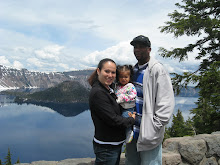 |
| A normal oxygen level would be 96% not 73% |
 Once I'm outside the plane terminal this overloaded rig pulls in next to our bus, unveils it's load and wants to begin unloading it onto our already overcrowded bus. It hits me... Bill your not in America anymore let alone anywhere near Kansas. All safety and common sense rules are thrown out the window for the rest of our trip. So with everybody huffing and puffing we begin one of many loading's and unloading's of our supplies from the bus. These people in Bolivia really need to learn the concept of wooden pallets, shrink wrap and motorized forklifts. I have no idea how many pounds of gear we eventually moved over the coarse of the next two weeks but it was substantial. We carried thousands of pounds of gear up steep flights of stairs, across bridges, through ankle deep salt water, into small medical clinics in the middle of nowhere and then back to the bus for the next leg in our journey. Setting sentinels often so our gear would not grow legs and run off on us. I don't think we actually had anything stolen from us except from the Bolivian Customs Department.
Once I'm outside the plane terminal this overloaded rig pulls in next to our bus, unveils it's load and wants to begin unloading it onto our already overcrowded bus. It hits me... Bill your not in America anymore let alone anywhere near Kansas. All safety and common sense rules are thrown out the window for the rest of our trip. So with everybody huffing and puffing we begin one of many loading's and unloading's of our supplies from the bus. These people in Bolivia really need to learn the concept of wooden pallets, shrink wrap and motorized forklifts. I have no idea how many pounds of gear we eventually moved over the coarse of the next two weeks but it was substantial. We carried thousands of pounds of gear up steep flights of stairs, across bridges, through ankle deep salt water, into small medical clinics in the middle of nowhere and then back to the bus for the next leg in our journey. Setting sentinels often so our gear would not grow legs and run off on us. I don't think we actually had anything stolen from us except from the Bolivian Customs Department.
Naomi decided it was far too dangerous for us to sleep on the floor inside City Hall because it was freshly mopped with kerosene each day. Zipping our sleeping bag up could have caused a spark igniting the flammable vapors so we moved to an outdoor corner of the court yard under a shade tree, next to an old friend, a red tractor. The process of making up the medical bags for each clinic began in earnest under my watchful eye.
Restroom facilities in Bolivia are ahhhhh... nasty to say the least. Remember too I work at a waste water treatment plant. Think of the worst smelling, vile, Forest Service bathroom you have ever needed to use in America. 99% of the restrooms in Bolivia are worse. Besides the drunk guys peeing on the floor and walls. Toilets that will not flush toilet paper, so it builds up in the open trash can next to the toilet. It was very interesting when we first got there and Ken and I had to clean them so the ladies could relieve themselves. I knew my waste water skills would come in handy for this trip.






No comments:
Post a Comment